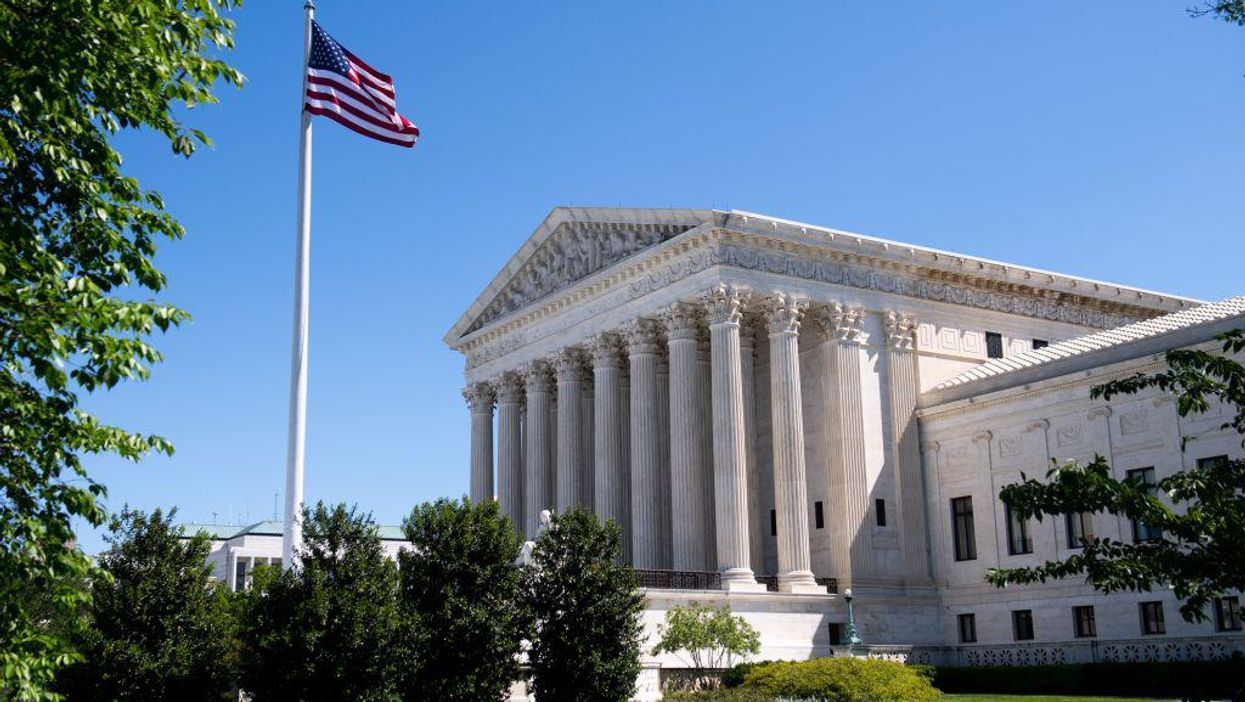
SAUL LOEB/AFP via Getty Images

The Supreme Court on Thursday halted the Biden administration's COVID-19 vaccine mandate for large businesses – just three days after the Occupational Safety and Health Administration’s emergency measure went into effect.
President Joe Biden announced the sweeping COVID-19 vaccination mandate for large businesses in September; it would have affected more than 80 million Americans. The order required workers at businesses with 100 or more employees to get vaccinated against COVID-19 or submit a negative COVID-19 test weekly in order to work. The order also forced unvaccinated workers to wear face masks indoors at work. The order was challenged with lawsuits from 27 states.
By a 6–3 vote, the Supreme Court blocked Biden's business vaccine mandate.
The Supreme Court declared that the Biden administration exceeded its authority by having the Occupational Safety and Health Administration enforce the mandate.
“OSHA has never before imposed such a mandate. Nor has Congress. Indeed, although Congress has enacted significant legislation addressing the COVID–19 pandemic, it has declined to enact any measure similar to what OSHA has promulgated here,” the conservative justices wrote in an unsigned opinion.
"Although Congress has indisputably given OSHA the power to regulate occupational dangers, it has not given that agency the power to regulate public health more broadly," the court proclaimed. "Requiring the vaccination of 84 million Americans, selected simply because they work for employers with more than 100 employees, certainly falls in the latter category."
"Although COVID–19 is a risk that occurs in many workplaces, it is not an occupational hazard in most,” the highest court in the land proclaimed. "Permitting OSHA to regulate the hazards of daily life—simply because most Americans have jobs and face those same risks while on the clock—would significantly expand OSHA’s regulatory authority without clear congressional authorization."
In his concurrence, Justice Neil Gorsuch noted that Congress never granted OSHA the power to "regulate the daily lives and liberties of millions of Americans."
"The question before us is not how to respond to the pandemic, but who holds the power to do so. The answer is clear: Under the law as it stands today, that power rests with the States and Congress, not OSHA," Gorsuch said. "In saying this much, we do not impugn the intentions behind the agency’s mandate. Instead, we only discharge our duty to enforce the law’s demands when it comes to the question who may govern the lives of 84 million Americans. Respecting those demands may be trying in times of stress. But if this Court were to abide them only in more tranquil conditions, declarations of emergencies would never end and the liberties our Constitution’s separation of powers seeks to preserve would amount to little."
In dissent, the three liberal justices argued that the Supreme Court was overstepping guidance from health experts.
"Acting outside of its competence and without legal basis, the Court displaces the judgments of the Government officials given the responsibility to respond to workplace health emergencies,” Justices Stephen Breyer, Elena Kagan, and Sonia Sotomayor wrote in a joint dissent.
The Supreme Court did allow national vaccination requirements for health care workers at medical facilities that accept Medicare or Medicaid payments, potentially affecting 76,000 health care facilities as well as home health care providers, according to the Associated Press. The rule provides medical and religious exemptions.
That decision was passed by a 5-4 vote with Justices John Roberts and Brett Kavanaugh joining the liberal justices.
"The challenges posed by a global pandemic do not allow a federal agency to exercise power that Congress has not conferred upon it. At the same time, such unprecedented circumstances provide no grounds for limiting the exercise of authorities the agency has long been recognized to have," the court said.
This story is breaking and will be updated.